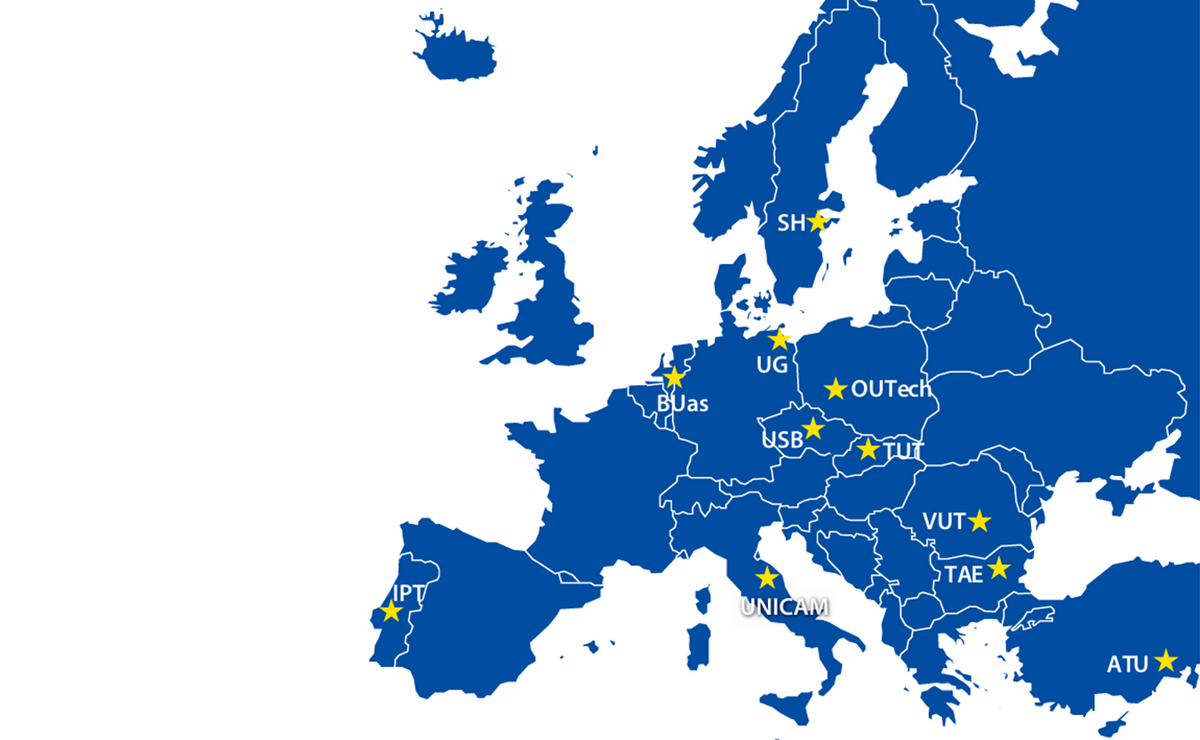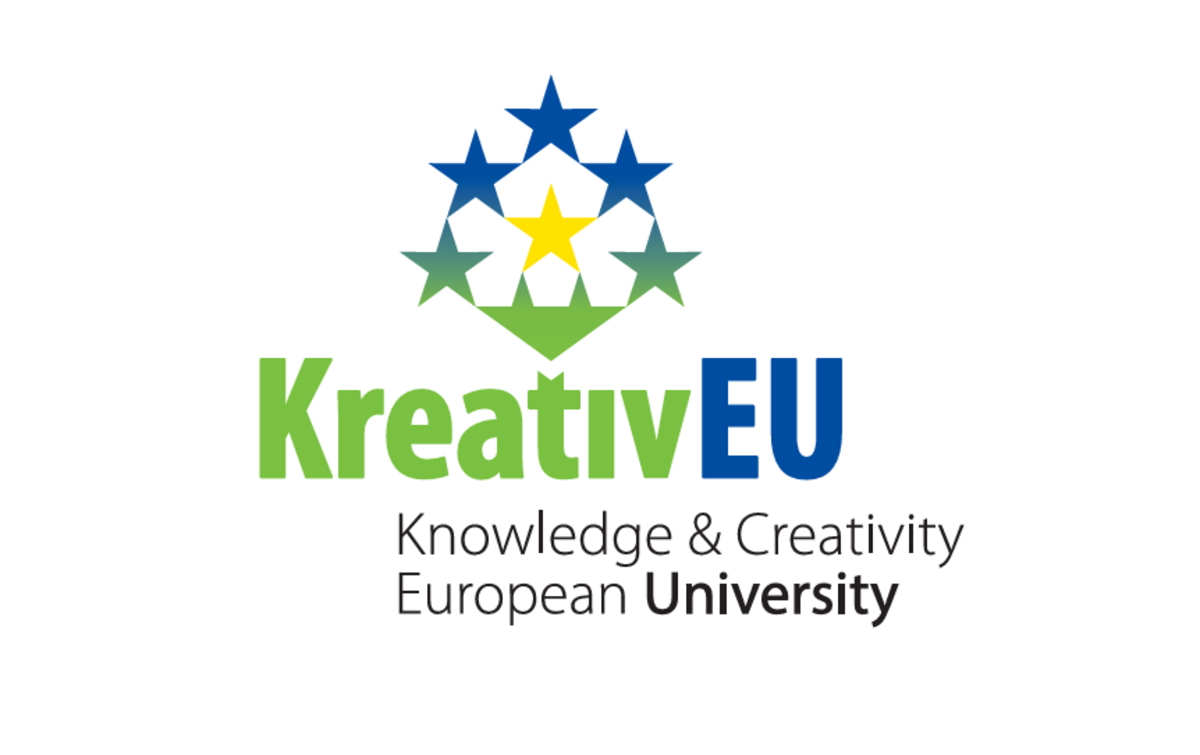The universities that have joined up for the KreativEU alliance aim to collaborate strategically to realise a common vision in the design of teaching and research in Europe at both an institutional and structural level. They will establish a transnational interuniversity campus. On this campus, students, doctoral candidates and members of staff will have access to seamless mobility options (physical, mixed mobility or virtual learning) for studying, supplementing their training, teaching, or performing research at one of the partner institutions. Thematically, the alliance will focus on enhancing the creative potential of the joint cultural heritage by investigating local, regional and national traditions, practices and customs and make it accessible for cross-border teaching activities that shall foster the democratisation of societies.
The KreativEU European University aims to develop innovative educational and research programmes that place renewed value on the preservation and protection of the material and immaterial heritage of the various regions in their respective ecological, societal, and digital contexts.
All partner universities of the KreativEU alliance have bilateral Erasmus contracts. These will make it possible for students, researchers, teachers and members of administrative staff to complete periods of stay at one of the partner institutions. Programmes for qualification and continuing professional development, BIPs, workshops, summer schools and conferences are already on offer.
“Involvement in a European University is a feature of the target agreement with the State Government. We must now gain the support of as many members of the university community as possible to bring the university alliance to life and in order to realise the objectives. A central aspect of KreativEU’s strategy is ecocultural identity, an approach stemming from one of Greifswald’s research domains - the Baltic Sea region. This approach recognises that the environment itself and the way we perceive it is shaped by cultural practices. This is good, because the concept makes it possible to involve a very broad range of disciplines beyond the social sciences and humanities,” explains Prof. Dr. Katharina Riedel, Rector of the University of Greifswald.
“The KreativEU Alliance comprises universities that are already long-term partners of the University of Greifswald as well as new partners. The partner universities have in common that they are located in historic towns and that they understand their activities in teaching, research and third mission in part as a motor for the development of their local regions. Participating in KreativEU marks a milestone in the internationalisation of our university and will open up new opportunities for students, members of teaching staff and researchers, as well as administrative staff members to take part in international exchange and trans-European collaboration in teaching and research,” says Dorthe G.A. Hartmann, Pro-Rector for Studies, Teaching, Teacher Training and Internationalisation. Pro-Rector Hartmann led Greifswald’s involvement in the new alliance.
Eight work packages have been set out for establishing KreativEU. The University of Greifswald will receive approx. 1.5 million euros from the EU. The university will join up with the Valahia University of Targoviste to coordinate the work package “Teaching”. This work package shall develop transnational and interdisciplinary classes, joint master’s and PhD programmes, and establish a Centre of Excellence for Digital Education and AI, as well as a Careers Service.
The University of Greifswald is joined by ten further institutions in the KreativEU alliance. These are the Polytechnic University of Tomar (Portugal) as Lead Partner, the Adana Alparslan Türkeş Science and Technology University (Turkey), the D. A. Tsenov Academy of Economics (Bulgaria), the Breda University of Applied Sciences (Netherlands), the Södertörn University (Sweden), the Opole University of Technology (Poland), the University of Camerino (Italy), the University of South Bohemia in České Budějovice (Czech Republic), the Trnava University (Slovakia), and the Valahia University of Targoviste (Romania).
As one of the flagship initiatives of the European Commission’s European Strategy for Universities (2022), membership of a European University has become an important indicator in the internationalisation of universities.
Further information
https://www.uni-greifswald.de/en/international/international-profile/kreativeu/
https://kreativEU.org
Booklet (PDF)
Background to the initiative [de]
Contact at the University of Greifswald
Dorthe G. A. Hartmann, M. A.
Pro-Rector for Teaching, Teacher Training and Internationalisation
Domstraße 11, Entrance 2, 17489 Greifswald
prorektorin-lehreuni-greifswaldde


